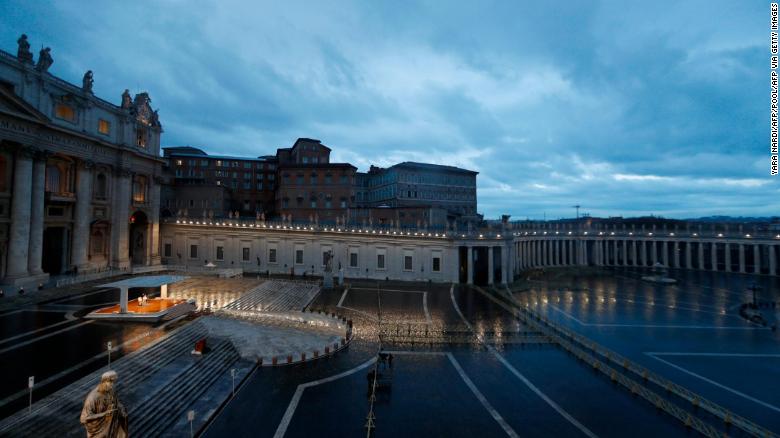Pope Says Coronavirus Pandemic Could Be Nature's Response To Climate Crisis
Rome Pope Francis has said the coronavirus pandemic is one of "nature's responses" to humans ignoring the current ecological crisis.
In an email interview published Wednesday in The Tablet and Commonwealth magazines, the pontiff said the outbreak offered an opportunity to slow down the rate of production and consumption and to learn to understand and contemplate the natural world.
"We did not respond to the partial catastrophes. Who now speaks of the fires in Australia, or remembers that 18 months ago a boat could cross the North Pole because the glaciers had all melted? Who speaks now of the floods?" the Pope said.
"I don't know if these are the revenge of nature, but they are certainly nature's responses," he added.
The pandemic has radically changed the way the Vatican operates, with the Pope celebrating Palm Sunday mass in an empty church and the sites normally packed with tourists empty.
The 83 year old Pope, who has a damaged lung from an infection in his 20s, has twice tested negative for the novel coronavirus. He is being distanced from anyone who might be carrying the virus, takes his meals in his private quarters, and uses hand sanitizer before and after meeting any guests, the Vatican press office said.
Pope Francis also said in the interview he was recovering from his bronchitis and praying even more from his residence in the Vatican during this "time of great uncertainty."
Francis also revealed he goes to confession every Tuesday to ask forgiveness for his own selfishness. "I take care of things there," he said.
He also criticized the response to the outbreak, saying the homeless should be quarantined in hotels and not in parking lots.
"A photo appeared the other day of a parking lot in Las Vegas where they [the homeless] had been put in quarantine. And the hotels were empty. But the homeless cannot go to a hotel," the Pope said.
"This is the moment to see the poor," he said, adding that society often treats those in need as "rescued animals."
The Pope also warned against the rise of populist politicians who he said are giving speeches reminiscent of Hitler in 1933 and others who are focusing solely on the economy. He said he was worried by the "hypocrisy of certain political personalities who speak of facing up to the crisis, of the problem of hunger in the world, but who in the meantime manufacture weapons."
The Pope encouraged those in a lockdown to find creative ways of being at home. "Take care of yourselves for a future that will come," Francis said.

Yorumlar
Yorum Gönder